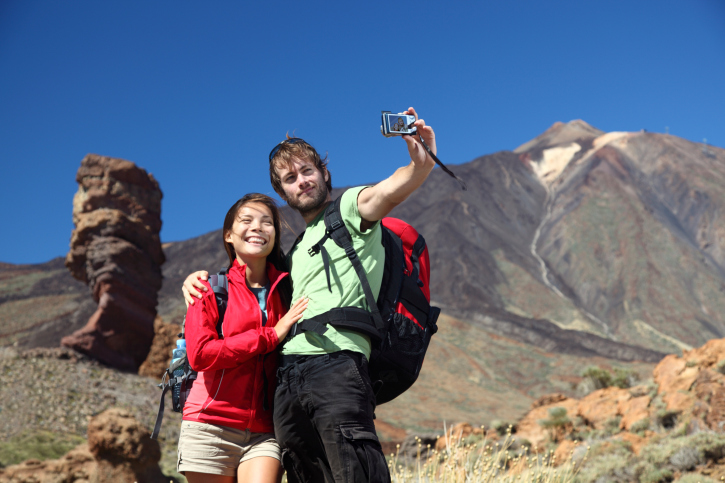5 Ways Millennials Are Using Tech for Travel

Millennial travelers, also known as Gen Y (1980 – 1999), are on the move and have different travel behaviors than the generations before them. To secure those reservations from the Millennial traveler, we need to know how to market to Millennials.
According to the 2014 Portrait of American Travelers, conducted by MMGY Global, 24 percent of Millennials are planning to take overnight leisure trips compared to 14 percent who are planning fewer trips. Millennials are planning on spending more on travel than their Gen X counterparts, $887 and $666 respectively. Millennials also place a high value on leisure trips and taking their vacation time, taking on average 4.6 overnight trips per year.
We know they value travel and one emerging theme is the need for technology during the planning, travel, and post-travel phases of the buyer’s journey. Gen Y grew up with advancements in computer technology, the introduction of the World Wide Web, and the shift in smartphone capabilities. In fact, HotelRez found that 80 percent of Millennials sleep right next to their smartphone.
In our always connected world, Millennials are much savvier when it comes to using tech for travel. Let’s take a look at five ways Millennials are using technology as it relates to travel and some Millennial travel statistics:
Search: Millennials have the world at their fingertips and need information prior to booking. On average, they peruse more than 10 sources before making their reservation. Millennials are much more adept at avoiding traditional advertising efforts and 67 percent will avoid clicking on sponsored or paid content on a website. Being genuine and authentic in your messaging is important to the Millennial instead of solely focusing on getting promoted content on a ton of sites. Make sure your hotel marketing plan includes a variety of messages and organic efforts.
Social bookings: Hotels looking to make reservations easy on the guest are investigating into social bookings. Loews Hotels assists guests with reservations on Twitter when a user uses the hashtag #BookLoews. Loews will continue the conversation before sending a secure payment link to the Twitter user.

Self-check-in: 36 percent of Millennial travelers are self-sufficient and prefer self-service kiosks to check-in whereas 19 percent on non-Millennials prefer automated check-in services. Some hotels are even moving toward smartphone check-in capabilities.
Social shares: Word of mouth marketing is still around though it’s adapted to its online counterpart: social media. 75 percent of Gen Yers have at least one profile on a social media network. The Gen Y generation has the capability to share their travel experience much easier in our digital age and even is trending toward the “braggie,” the idea that travelers are bragging about their travels on social media.
Smart concierge: With the plethora of travel related apps for smartphones and tablets, as well as websites dedicated to providing local information, the need for concierge services has declined for Gen Y travelers. Some hotels have moved their concierge onto their social channels, such as the Hyatt that allows guests to tweet questions to a dedicated concierge Twitter account.
The major conclusion we can draw is that Millennials expect a lot from their smartphones and computers as it relates to planning, booking, and getting around on their vacations. Making sure you’re accounting for mobile travelers is key to your success with Gen Y travelers.
What other ways do you see the Millennial generation shaping travel behaviors? Tell us in the comments below!
